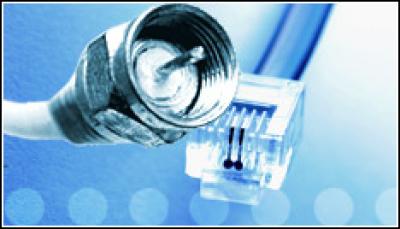UK Lags In Super-Fast Broadband Stakes

The UK is lagging behind in next-generation broadband (i.e. fibre), but is holding its own regarding penetration and price
A new report from the Organisation for Economic Co-operation and Development (OECD) has presented a mixed bag of results for the UK regarding the health and competitiveness of its broadband market.
The UK is distinctly mid table when it comes to broadband penetration, after it was placed 13th out of the 30 OECD members, with 28.9 subscribers per 100 population. The top five were Netherlands (38.1 percent), Denmark (37 percent), Norway (34.5 percent), Switzerland (33.8 percent) and South Korea (32.8 percent).
That said, the UK actually achieved a commendable ranking of fifth in terms of total broadband users with 17.7 million, compared to France (18.7 million), Germany (24.0 million), Japan (30.9 million), and the US (81.1 million).
The study also found that 61.5 percent of UK households have access to a broadband service, ranking it in ninth place behind the likes of South Korea (94.3 percent), Iceland (83.2 percent), Denmark (74.1 percent), Norway (73 percent) and Sweden (70.7 percent).
The competitive nature of the ISP market in the UK earned the country a good ranking as being the fourth-cheapest country for broadband subscriptions, with average monthly subscriptions costing $30.63 (£18.84).
The report also found that currently, nearly one in 10 OECD subscribers is accessing the internet over fibre networks. Indeed, it is the fibre side that lets the UK down, with the UK placed 21st out of 30 in terms of speed, which puts it behind the likes of Portugal, Greece and Spain.
When it came to average advertised download speeds, the UK was placed 15th, but it is worth noting that the OECD’s criteria for measuring broadband is a paltry 256kbps download speed. The UK’s average advertised download speeds is 10.7Mbps, but this lags behind competitors such as France with 51Mbps and the Netherlands with 18.2Mbps, whereas users in Japan get to enjoy 92.8Mbps and South Korea 80.8Mbps.
The report also found that many governments are subsidising the rollout of new broadband networks.
In the UK, the government has opted for a broadband tax which it hopes will connect 90 percent of the UK to superfast broadband by 2017. However, in reality, the government’s sums do not add up.
The OECD feels that Government subsidies for a fibre rollout are justified because of the benefits it can make in four key sectors of the economy, namely education, electricity, health, and transportation.